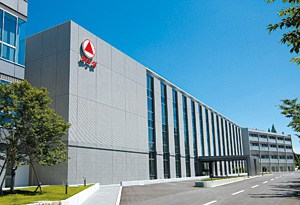 Takeda has suffered a major pipeline setback after deciding to terminate development of fasiglifam, a candidate therapy for diabetes that had been scheduled to reach the market next year.
Takeda has suffered a major pipeline setback after deciding to terminate development of fasiglifam, a candidate therapy for diabetes that had been scheduled to reach the market next year.
The pharma company took the decision after phase III trials revealed that some patients taking fasiglifam (also known as TAK-875) showed elevated levels of liver enzymes which could indicate a toxicity issue.
Fasiglifam is a first-in-class GPR40 agonist, which stimulates insulin secretion independently from the level of blood glucose, a characteristic that led to expectations that it would be less likely to cause hypoglycaemia than other oral anti-diabetic (OAD) drugs, while also causing less weight gain.
Encouraging results in a phase III Japanese trial reported last year prompted suggestions that Takeda could have a mega-blockbuster on its hands to replace its diabetes treatment Actos (pioglitazone), which saw $1.8bn wiped off its revenues because of generic competition last year.
Takeda had phase III trials ongoing comparing the drug to placebo, Sanofi’s Amaryl (glimepiride) and Merck & Co’s DPP4 inhibitor Januvia (sitagliptin), as well as a combination trial with DPP4 inhibitors and a large-scale cardiovascular outcomes study that was due to report results in 2015.
The company said it worked with three independent panels of experts to monitor the safety of trial participants and ensure independent oversight for the clinical trials and, after careful consideration of the data, decided voluntarily to terminate all development activities for fasiglifam.
The demise of the project leaves Takeda without an obvious successor to Actos, which at its 2011 height accounted for more than a quarter of the company’s turnover. While it recently launched its DPP4 inhibitor Nesina (alogliptin) in the US, the drug is entering a fairly crowded market and will have to play catch-up to the leaders.
Furthermore, earlier this year the company withdrew its marketing authorization application (MAA) in Europe for the Affymax-partnered anaemia treatment Omontys (peginesatide) and recalled all lots of the drug in the US after reports of serious hypersensitivity reactions including anaphylaxis. A prostate cancer candidate – TAK-700 – failed to meet its objectives in a phase III trial but remains in development.
There has also been a delay in the US for regulatory review of its new ulcerative colitis candidate vedolizumab although it remains on track for Crohn’s disease. Much now hangs on the success of this drug and a couple of other late-stage products, such as vortioxetine for depression (licensed from Lundbeck) – recently approved as Brintellix in the US – and multiple myeloma candidate MLN9708.
Meanwhile, the future of the GPR40 agonist class seems to hang in the balance. Amgen’s AMG-837 candidate was reportedly also discontinued because of toxicity concerns in 2012, although a number of other companies are still developing candidates in the class.
Lilly has LY2881835 in early clinical trials, while Piramal recently started trials of its P11187 candidate and Connexios Life Sciences has also brought CNX 011-67 into the clinic. Merck & Co is also reported to be working in this area.




